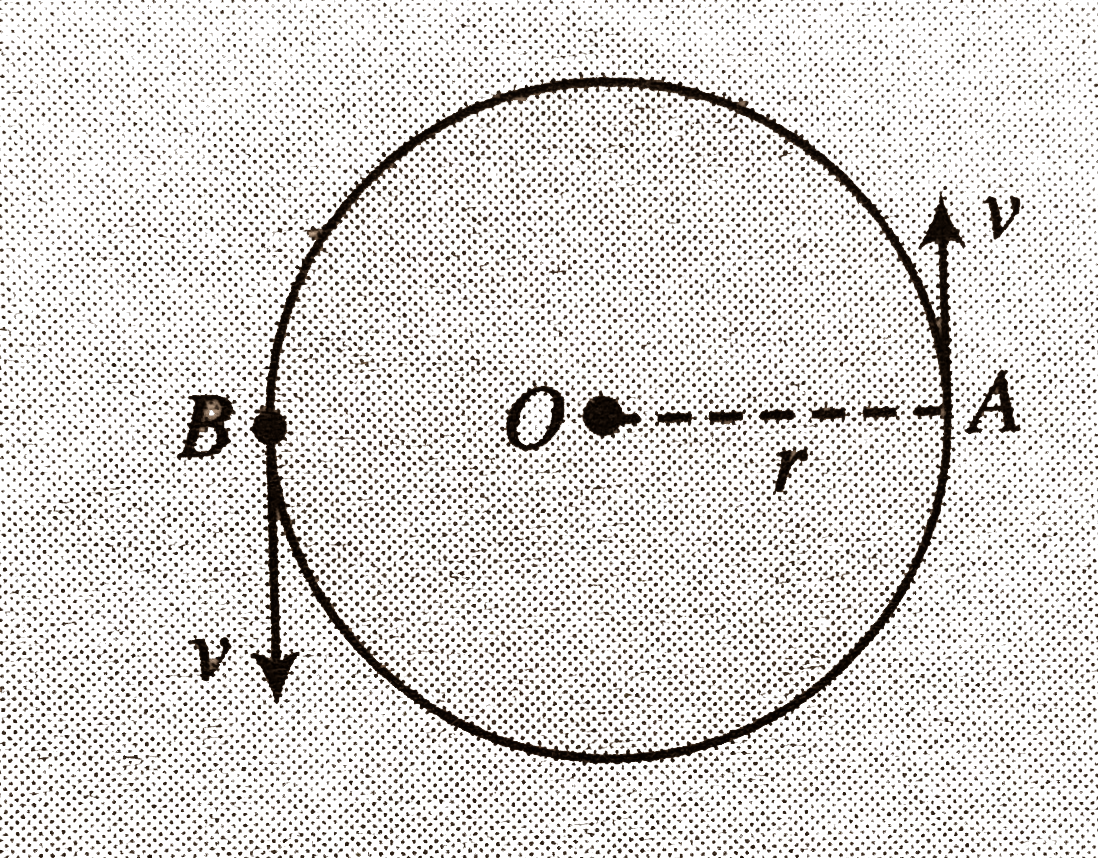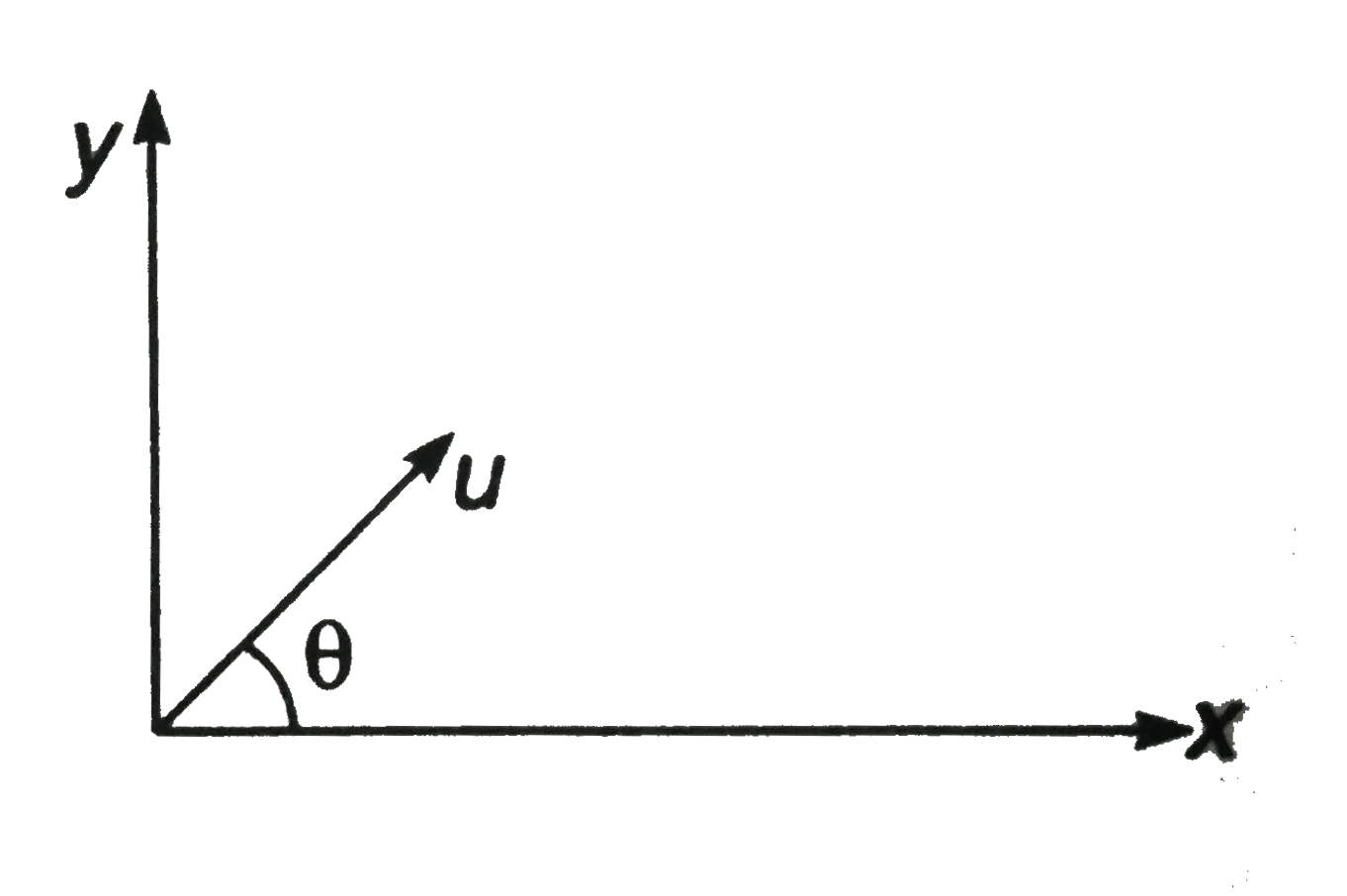Find the velocity of a particle A w.r.t. B if velocity of particle A due west is 5kmh−1 and that of B due south is 3kmh−1.
The correct Answer is:5.83km/h
To find the velocity of particle A with respect to particle B, we can follow these steps:
Step 1: Define the velocities of particles A and B
- The velocity of particle A is given as 5 km/h due west. In vector form, this can be represented as:
→vA=−5^i km/h
(where ^i represents the unit vector in the east-west direction, and negative indicates west).
- The velocity of particle B is given as 3 km/h due south. In vector form, this can be represented as:
→vB=−3^j km/h
(where ^j represents the unit vector in the north-south direction, and negative indicates south).
Step 2: Calculate the relative velocity of A with respect to B
The relative velocity of A with respect to B is given by the formula:
→vA/B=→vA−→vB
Substituting the values we have:
→vA/B=(−5^i)−(−3^j)=−5^i+3^j
Step 3: Write the resulting velocity vector
The resulting velocity vector of A with respect to B is:
→vA/B=−5^i+3^j km/h
Step 4: Calculate the magnitude of the relative velocity
To find the magnitude of the relative velocity, we use the formula:
|→vA/B|=√(−5)2+(3)2
Calculating this gives:
|→vA/B|=√25+9=√34
Calculating √34 gives approximately:
|→vA/B|≈5.83 km/h
Final Answer
The velocity of particle A with respect to particle B is approximately 5.83 km/h.
---
- The velocity of particle A is given as 5 km/h due west. In vector form, this can be represented as:
→vA=−5^i km/h
(where ^i represents the unit vector in the east-west direction, and negative indicates west).
→vB=−3^j km/h
(where ^j represents the unit vector in the north-south direction, and negative indicates south).
The relative velocity of A with respect to B is given by the formula:
→vA/B=→vA−→vB
Substituting the values we have:
→vA/B=(−5^i)−(−3^j)=−5^i+3^j
The resulting velocity vector of A with respect to B is:
→vA/B=−5^i+3^j km/h
To find the magnitude of the relative velocity, we use the formula:
|→vA/B|=√(−5)2+(3)2
Calculating this gives:
|→vA/B|=√25+9=√34
Calculating √34 gives approximately:
|→vA/B|≈5.83 km/h
The velocity of particle A with respect to particle B is approximately 5.83 km/h.
Topper's Solved these Questions
- MOTION IN A PLANE BOOK - MODERN PUBLICATIONCHAPTER - MOTION IN A PLANE EXERCISE - Conceptual Questions
23 Videos
- MOTION IN A PLANE BOOK - MODERN PUBLICATIONCHAPTER - MOTION IN A PLANE EXERCISE - TOUGH & TRICKY PROBLEMS
14 Videos
- MOTION IN A PLANE BOOK - MODERN PUBLICATIONCHAPTER - MOTION IN A PLANE EXERCISE - PRACTICE PROBLEMS (6)
1 Videos
- MECHANICAL PROPERTIES OF FLUIDSBOOK - MODERN PUBLICATIONCHAPTER - MECHANICAL PROPERTIES OF FLUIDSEXERCISE - Chapter Practise Test
16 Videos
- MOTION IN A STRAIGHT LINE BOOK - MODERN PUBLICATIONCHAPTER - MOTION IN A STRAIGHT LINE EXERCISE - CHAPTER PRACTICE TEST
16 Videos
Similar Questions
The velocituy of particle (P) due east is 4ms−1 due South,. What is the velocity of Pw.r.t.Q ?
View SolutionParticles AandB move with constant and equal speeds in a circle as shown in (Fig. 5.164). Find the angular velocity of the particle A with respect to B, if the angular velocity of particle Aw.r.t.O is ω.
 .
.
View Solution
Knowledge Check
The velocity of particle A is 0.1 ms−1 and that of particle B is 0.05 ms−1 if the mass of the particle B is five times that of particle A the ratio of De Broglie wavelengths associtated with the particles A and B is
A5:2B3:4C6:4D4:3Starting from rest, the acceleration of a particle is a=2(t-1). The velocity of the particle at t=5s is :-
A15 m/sB25 m/sC5 m/sDNone of theseThe velocity of a particle varies with time as →v=3ˆi+(4−5t)ˆjms−1. Find the average velocity of the particle for a time interval between t=0 and a time when the speed of the particle becomes minimum.
A(3ˆi+2ˆj)ms−1B(6ˆi+5ˆj)ms−1C(4ˆi+ˆj)ms−1D(3ˆi−5ˆj)ms−1
The velocity of particle P due east is 4ms−1 and that of Q is 3ms−1 due north. What is the relative velocity of P w.r.t. Q.
View SolutionFind the particles closet to x=0.1 having same velocity as a particle at x=0.1 at t=0.
View SolutionA particle is projected from ground with initial velocity u=20(√2)m/satθ=45∘. Find
(a) R,H and T,
(b) velocity of particle after 1 s
(c) velocity of particle at the time of collision with the ground (x-axis).

View SolutionA vehicle is accelerating on a straight road.Its velocity at any instant is 30kmh^(-1) ,after 2s ,it is 33.6kmh^(-1) and after further 2s ,it is 37.2kmh^(-1) .Find the acceleration of vehicle in ms^(-2) .Is the acceleration uniform?
View SolutionThe coordinates of a particle moving in x-y plane at any time t are (2t,t2). Find (a) the trajectory of the particle, (b) velocity of particle at time t and (c) acceleration of particle at any time t.
View Solution
